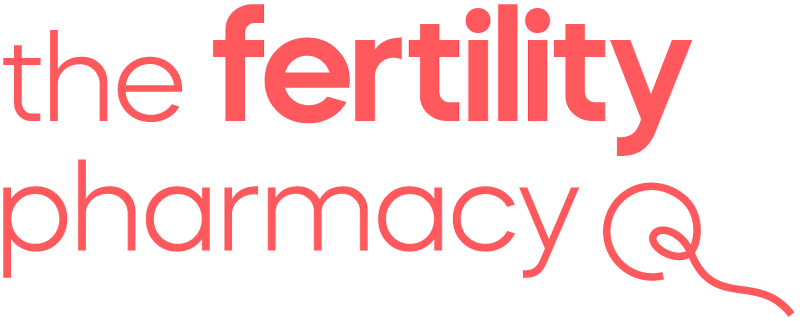Intralipid Infusion from The Fertility Pharmacy’s Nurse at Home service
Wendey Munro, The Fertility Pharmacy – Clinical Marketing Director
The Fertility Pharmacy does not recommend or hold any opinion to the efficacy of Intralipid Infusion treatment.
If the decision has been made and a prescription is provided to us, we are in the unique position to be able to provide a nurse to visit you in your own home to administer the infusion as per the prescription. According to experts, the benefit of Intralipid Infusions in patients with increased NK cytotoxic activity has not yet been proven to help patients with repeated IVF failure and therefore large-scale randomised controlled studies are still required.
However, for many years clinicians have prescribed this therapy with encouraging success rates.
From a patients’ perspective it is important to understand all the available options as part of the IVF journey.
Patients should be given the right to choose to have intravenously administered
intralipid, which, as mentioned above, although scientifically unproven, may enhance the likelihood of success.
What does the patient need to know?
Intralipid has been used with IVF treatment to help women who suffer from repeated IVF failure or recurrent miscarriage, or repeated failed implantation following embryo transfer.
We must stress that there is still to be a consensus within the medical community whether or how Intralipid actually works. There is limited evidence supporting the efficacy of intralipid in IVF. However, there have been numerous encouraging reports in the Uk and elsewhere. This is reported to bring the success rate of women with a history of several failed IVF treatments in line with the average rate seen in the general public.
Normally, the lining of the uterus contains immune cells that are specially adapted to tolerate this invading embryo. It is suggested that when these ‘friendly cells’ are not present or working effectively the mothers own immune system may reject the embryo with so-called NK (natural killer) cells. This could possibly make it difficult for the embryo to implant safely within the lining of the uterus.
What is the theory?
It is thought that intralipid is able to change the activity of the immune cells in the uterine lining, making a friendlier environment for the embryo. The limiting factor for the prescribing clinician is that there are no reliable tests that can definitively confirm whether a woman’s immune system will or will not reject any embryo that is trying to implant in her uterus.
One commonly presented theory is that as the embryo contains only half the genetic material from the mother, her uterus may interpret it as a foreign body and therefore attempt to reject the invasion.
What is Intralipid?
Intralipid is a 20% fat emulsion that is administered intravenously. The main constituents are soya oil and egg yolk, with traces of peanut oil.
Evidence from both animal and human studies suggest that intralipid administered intravenously may enhance implantation. Intralipid is a 20% intravenous fat emulsion used routinely as a source of fat and calories for patients requiring parenteral nutrition. It is a synthetic product composed of 10% soybean oil, 1.2% egg yolk phospholipids, 2.25% glycerin and water. Intralipid infusions stimulated the immune system to remove “danger signals” that can lead to pregnancy loss. The appeal of Intralipid lies in the fact that it is relatively inexpensive and is not a blood product.
Some doctors think natural killer (NK) cells in the body attack embryos and that intralipids stop that happening. But larger randomized trials into IVF and intralipids are needed to really prove this.
The truth is, intralipids might help. Might. Not will. If you’ve had miscarriages, repeated implantation failure and have elevated NK levels, intralipid infusion therapy should be on your clinic’s list.
Making the decision?
In 2011, UK researchers gave intralipid infusions to 50 women. All had endured numerous unsuccessful IVF cycles. Half of them got pregnant after taking the intralipids. The miscarriage rate was higher for another group who weren’t given intralipids. Small study, but an interesting one. This study was performed exploring that this therapy could compromise the natural killer cells activity. Dr George Ndukwe of the Care fertility clinic conducted a trial of the therapy on 50 women who have had several IVF failures. Approximately 50% of treated women got pregnant compared to 9% of women who got pregnant without receiving the intralipid infusion therapy. However, according to experts, a larger scale study is needed for confirming these data
In 2018, The Journal of Natural Science, Biology and Medicine published the below
investigation results:
Khan L, Qureshi VF, Jabeen T, Qureshi S. Use of intralipid in the management of recurrent implantation failure: An overview. J Nat Sc Biol Med 2018;9:111-4
Summary
One active research question is the possibility that abnormal maternal immune responses to paternal antigens may contribute to implantation failure. There is currently considerable confusion about the possible role of altered T-cell responses in patients with RIF. Some studies report changes in so-called TH1:TH2 cytokines in peripheral blood and on the basis of this suggest benefits from IVIG or intralipid infusions in such patients. However, the definition of which patients might benefit and the actual efficacy of such treatments have not been subjected to large-scale rigorous double-blind trials and thus remain largely unproven. This must be weighed against the significant costs and risks for the patients undertaking such treatments. Similarly, preliminary results using intralipid infusion to support implantation are encouraging. However, the real benefit of such treatment in patients with increased NK cytotoxic activity experiencing RIF has not yet been proven in large-scale randomized controlled studies.
Where does The Fertility Pharmacy come in?
A typical course of IVF intralipid treatment is two infusions: the first one 7 to 10 days before your scheduled egg retrieval; the second on your embryo transfer day. Some clinics propose a third infusion after a positive pregnancy test and monthly ones till the 13-week mark.
If a patient is prescribed an Intralipid Infusion, one of our nurses can visit the patient in her own home and safely administer the infusion in line with the personalised protocol. We will supply all the necessary equipment and advise the phttps://thefertilitypharmacy.com/wp-admin/admin.php?page=sucuriscanatient how to get the best results from the infusion.
For more information please get in touch.

